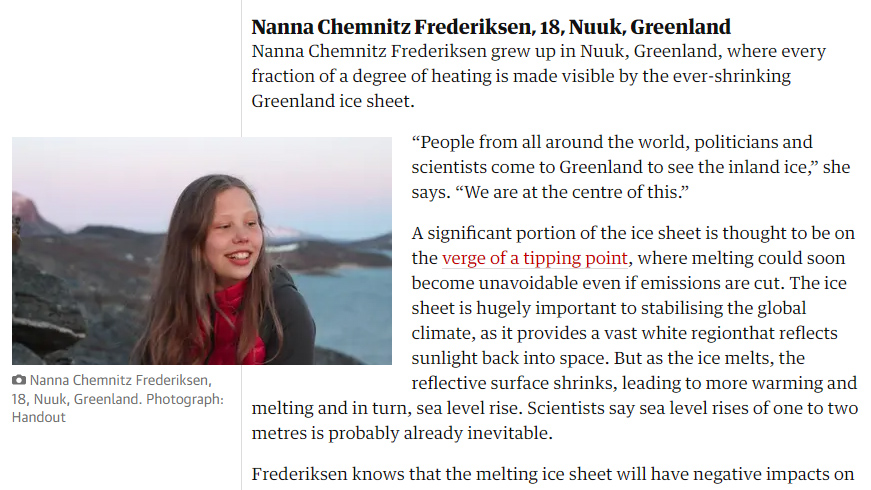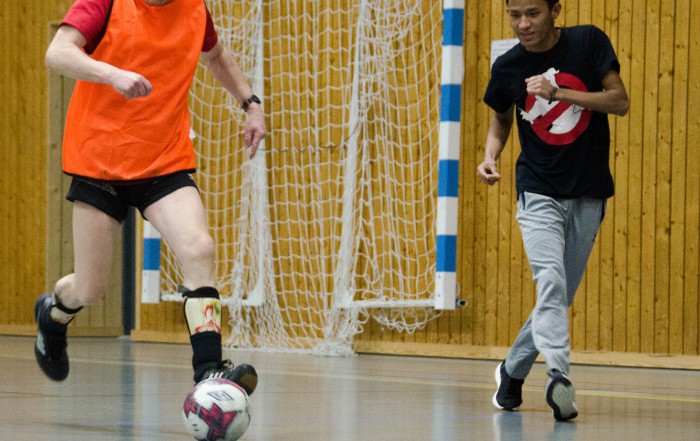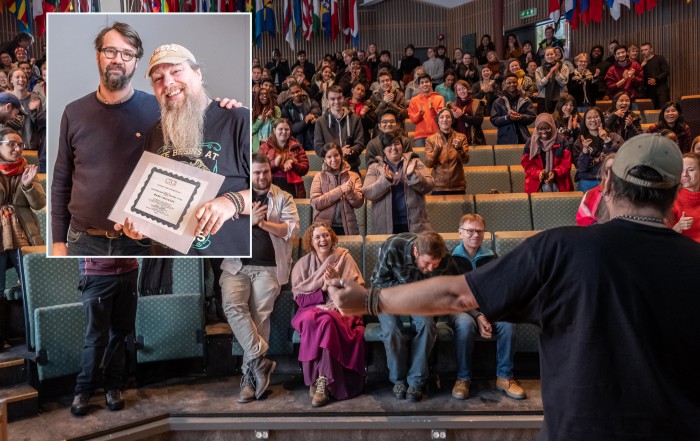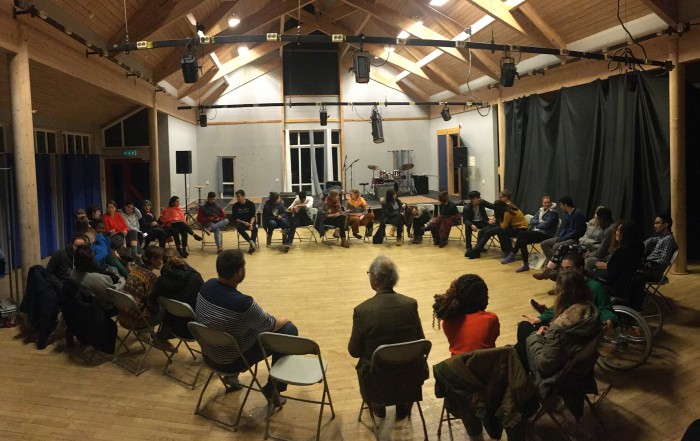“People from all around the world, politicians and scientists come to Greenland to see the inland ice,” she says. “We are at the centre of this.”
A significant portion of the ice sheet is thought to be on the verge of a tipping point, where melting could soon become unavoidable even if emissions are cut. The ice sheet is hugely important to stabilizing the global climate, as it provides a vast white region that reflects sunlight back into space. But as the ice melts, the reflective surface shrinks, leading to more warming and melting and in turn, sea level rise. Scientists say sea level rises of one to two metres is probably already inevitable.
Frederiksen knows that the melting ice sheet will have negative impacts on communities across Greenland, especially in northern settlements such as Qaanaaq where permafrost melting is destabilizing homes and roads and impacting how fishers and hunters operate.
But her real concern lies on the impact it will have globally. “I am not so scared of what the effects of the melting of ice in Greenland will be,” Frederiksen says, “It scares me what effect it can have for the rest of the world.”
Latest News
Parafootball and Deadline Day
For many years our students have had the pleasure of being involved with football activities in Fjalerhallen under the term "parafootball". This is made in co-operation with the culture section in Fjaler Municpality. Jon [...]
Award for Mark Chalkley
Our Senior University Counsellor, Mark Chalkley, has been chosen one of the nine 2019 Counselors That Change Lives, the only international counsellor to receive the award this year - and we think the first UWC [...]
Focus on World Religions
Last week was World Religion Week at UWC RCN, with focus on interfaith dialogue and intercultural understanding and philosophy of religion. We welcomed two visitors for the event, Hugh Rice of the University of [...]




